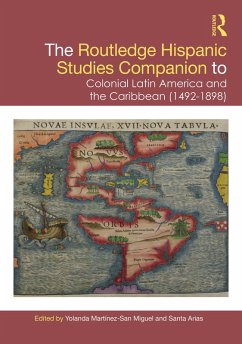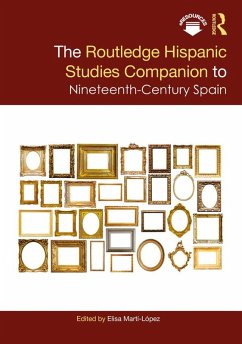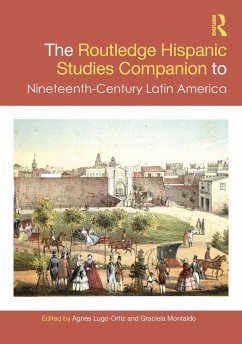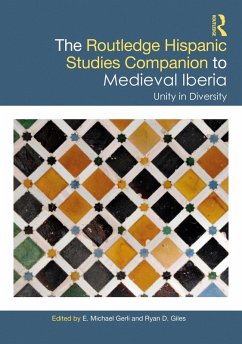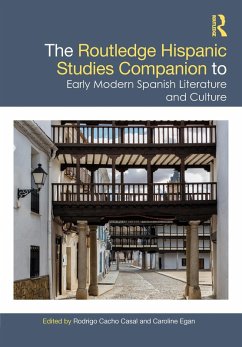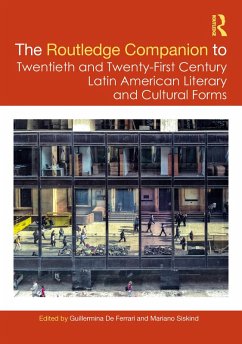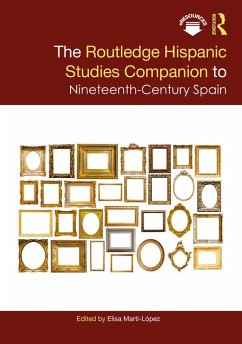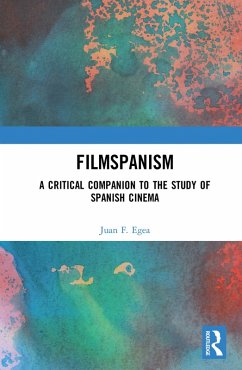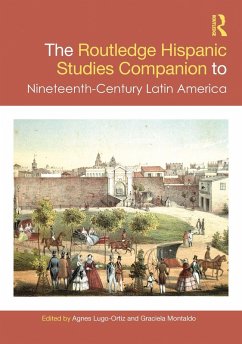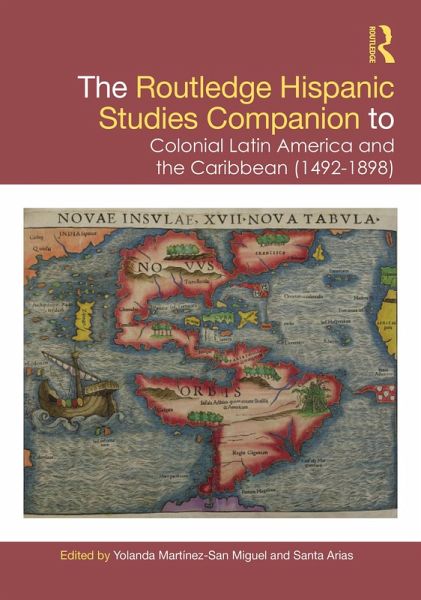
The Routledge Hispanic Studies Companion to Colonial Latin America and the Caribbean (1492-1898) (eBook, PDF)
Versandkostenfrei!
Sofort per Download lieferbar
46,95 €
inkl. MwSt.
Weitere Ausgaben:

PAYBACK Punkte
23 °P sammeln!
The Routledge Hispanic Studies Companion to Colonial Latin America and the Caribbean (1492-1898) brings together an international team of scholars to explore new interdisciplinary and comparative approaches for the study of colonialism.Using four overarching themes, the volume examines a wide array of critical issues, key texts, and figures that demonstrate the significance of Colonial Latin America and the Caribbean across national and regional traditions and historical periods.This invaluable resource will be of interest to students and scholars of Spanish and Latin American studies examinin...
The Routledge Hispanic Studies Companion to Colonial Latin America and the Caribbean (1492-1898) brings together an international team of scholars to explore new interdisciplinary and comparative approaches for the study of colonialism.
Using four overarching themes, the volume examines a wide array of critical issues, key texts, and figures that demonstrate the significance of Colonial Latin America and the Caribbean across national and regional traditions and historical periods.
This invaluable resource will be of interest to students and scholars of Spanish and Latin American studies examining colonial Caribbean and Latin America at the intersection of cultural and historical studies; transatlantic, postcolonial and decolonial studies; and critical approaches to archives and materiality. This timely volume assesses the impact and legacy of colonialism and coloniality.
Using four overarching themes, the volume examines a wide array of critical issues, key texts, and figures that demonstrate the significance of Colonial Latin America and the Caribbean across national and regional traditions and historical periods.
This invaluable resource will be of interest to students and scholars of Spanish and Latin American studies examining colonial Caribbean and Latin America at the intersection of cultural and historical studies; transatlantic, postcolonial and decolonial studies; and critical approaches to archives and materiality. This timely volume assesses the impact and legacy of colonialism and coloniality.
Dieser Download kann aus rechtlichen Gründen nur mit Rechnungsadresse in A, B, BG, CY, CZ, D, DK, EW, E, FIN, F, GR, HR, H, IRL, I, LT, L, LR, M, NL, PL, P, R, S, SLO, SK ausgeliefert werden.




